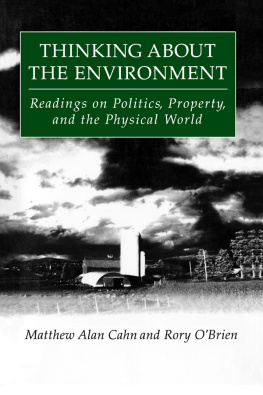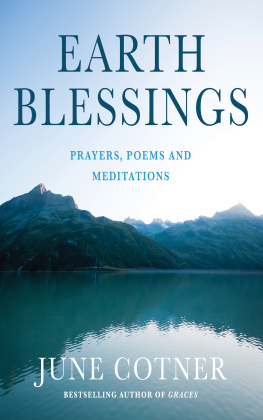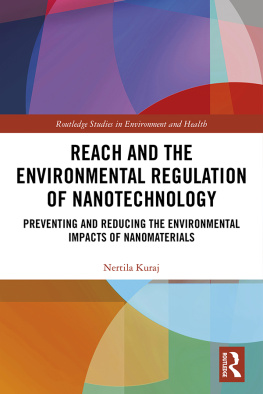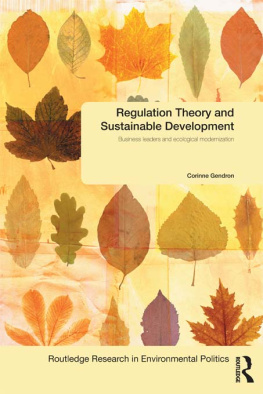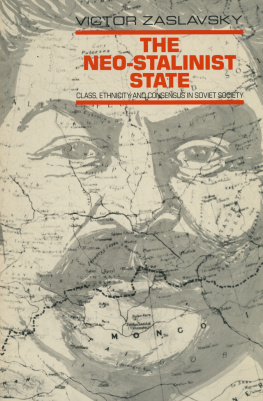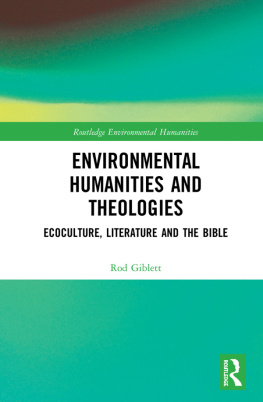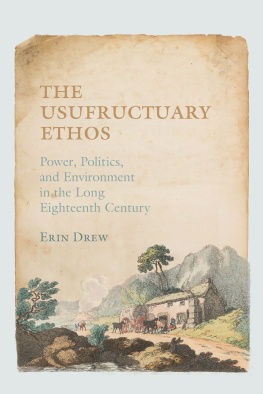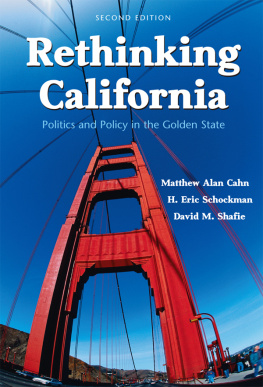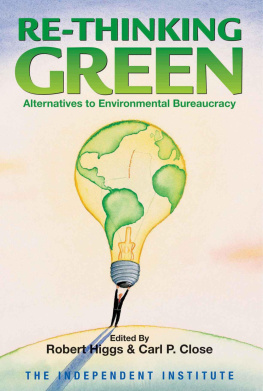THINKING ABOUT
THE ENVIRONMENT
Readings on Politics, Property,
and the Physical World
THINKING ABOUT
THE ENVIRONMENT
Readings on Politics, Property,
and the Physical World
Matthew Alan Cahn and Rory OBrien
First published 1996 by M.E. Sharpe
Published 2015 by Routledge
2 Park Square, Milton Park, Abingdon, Oxon OX14 4RN
711 Third Avenue, New York, NY 10017
Routledge is an imprint of the Taylor & Francis Group, an informa business
Copyright 1996 Taylor & Francis. All rights reserved.
No part of this book may be reprinted or reproduced or utilised in any form or by any electronic, mechanical, or other means, now known or hereafter invented, including photocopying and recording, or in any information storage or retrieval system, without permission in writing from the publishers.
Notices
No responsibility is assumed by the publisher for any injury and/or damage to persons or property as a matter of products liability, negligence or otherwise, or from any use of operation of any methods, products, instructions or ideas contained in the material herein.
Practitioners and researchers must always rely on their own experience and knowledge in evaluating and using any information, methods, compounds, or experiments described herein. In using such information or methods they should be mindful of their own safety and the safety of others, including parties for whom they have a professional responsibility.
Product or corporate names may be trademarks or registered trademarks, and are used only for identification and explanation without intent to infringe.
Library of Congress Cataloging-in-Publication Data
Thinking about the environment: readings on politics, property, and the physical world / edited by Matthew Alan Cahn and Rory OBrien.
p. cm.
Includes bibliographical references and index.
ISBN 1-56324-795-X (cloth : alk. paper).ISBN 1-56324-796-8 (pbk. : alk. paper)
1. Environmentalism.
2. ManInfluence on nature.
3. Philosophy of nature.
4. Social ecology.
I. Cahn, Matthew Alan, 1961
II. OBrien, Rory, 1955
GE195.T45 1996
304.2dc20
9610749
CIP
ISBN 13:9781563247965 (pbk)
ISBN 13:9781563247958 (hbk)
For Diane, Jonah, and Andrea
Contents
Rory OBrien and Matthew Cahn
Rory OBrien
Genesis
Aristotle
St. Augustine
Sam Gill
Frank Waters
Rory OBrien
Jean-Jacques Rousseau
John Locke
Karl Marx
Immanuel Kant
John Rawls
Herbert Marcuse
Matthew Cahn
Matthew Cahn
Henry David Thoreau
Ralph Waldo Emerson
Rachel Carson
Paul Ehrlich
Barry Commoner
Arne Naess
Garrett Hardin
Ynestra King
Murray Bookchin
Edward O. Wilson
Robert D. Bullard
Matthew Cahn
Peter Wenz
Christopher Stone
David W. Orr
Lester Milbrath
Terry L. Anderson and Donald R. Leal
Herman E. Daly
Robert C. Paehlke
Rory OBrien
Daniel Press
James L. Hudson
Robert O. Vos
This project evolved during a series of conversations sparked by the North-ridge earthquake. As we watched our classrooms and offices being replaced by trailers and porta-potties, we began to think more practically about the relationship between nature and our lives. The earthquake, in its devastating power, clearly reminded us of the primacy of the natural environment. Similarly, our inability to carry on mundane day-to-day tasks such as scheduling classes and giving lectures reminded us of our need toat least in partsubdue aspects of the natural environment.
In essence, our response to this natural disaster highlights a question that plagues industrial societies as we look toward the future: To what extent do we limit our development in order to preserve nature? Although we have entered a phase of accelerated growth over the last two hundred years, the drive to find a balance between development and preservation has gone on for centuries. Thinkers from across the Western tradition have struggled with how human civilization fits in the physical world. Certainly the preparation of this book has helped us to integrate our thoughts on thinking about nature. We hope it will help our students as well.
It is therefore fitting that we acknowledge the contributions of our students, and of our teachers. Several people have made contributions to this project over time, including Andrea Nguyen, Diane Berger, Sheldon Kamieniecki, Thomas Greene, Mark Kann, Robert Vos, and Daniel Press. Research assistance was tirelessly provided by Nimrod Cohen. Manuscript preparation was provided enthusiastically by Cynthia Harris. Editorial assistance was provided by Patricia Kolb and Elizabeth Granda. Responsibility for any and all shortcomings, of course, lies squarely with us.
Matthew A. Cahn
Rory OBrien
Northridge, California
THINKING ABOUT
THE ENVIRONMENT
Readings on Politics, Property,
and the Physical World
RORY OBRIEN AND MATTHEW CAHN
Over the last 300 years environmental degradation has moved from challenge to quagmire. The difficulty of changing behavior patterns, the interests associated with our complex international economic structure, different notions of how development and nature should be balanced, and conflicting assessments of the risks posed by chemicals in the environment all converge to make environmental challenges extremely difficult to solve. Why should we concern ourselves with ideas about nature? Whether our concern is the development of a greater awareness of the natural world, or the creation of public policies that work to protect the natural world, thinking about nature can help us gain a greater understanding of the physical environment and how we, as humans, fit into the larger drama of ecological diversity and interdependence.
Two Paths Toward the Same Goal
Philosophy and normative theory may provide conceptual tools and methodologies for assessing environmental challenges. When philosophers or theorists consider an issue, they strive to go beyond the most obvious level of inquiry. Philosophers look for causes in an effort to understand the underlying nature of things. In this sense philosophy is a quest for knowledge. This pursuit depends not so much on information gathered through research as it does on speculation about a given question. Philosophy is sometimes referred to as the most general science, in that its project is to discover underlying truths. All science seeks to find answers. In this manner, philosophy can be viewed as both the pursuit of wisdom and the knowledge itself that is gained through philosophical inquiry.

